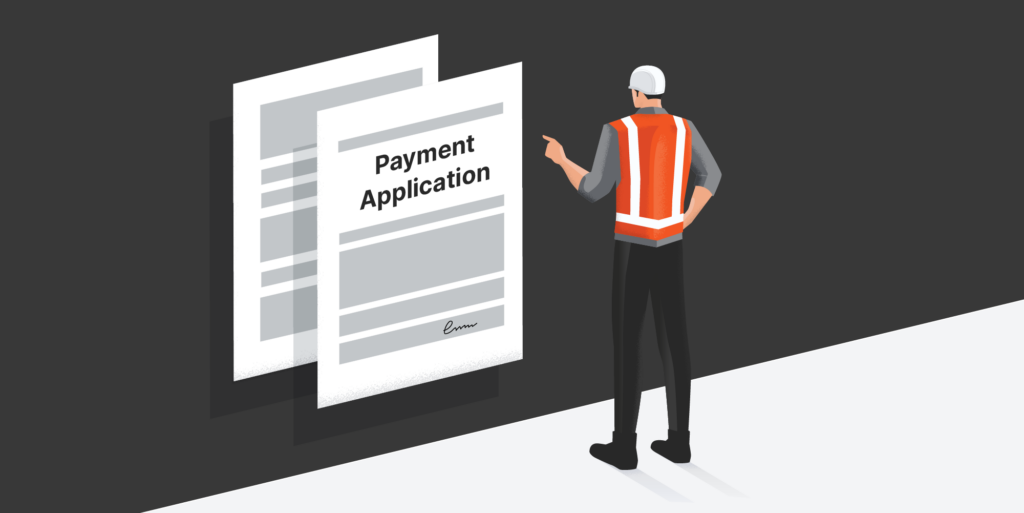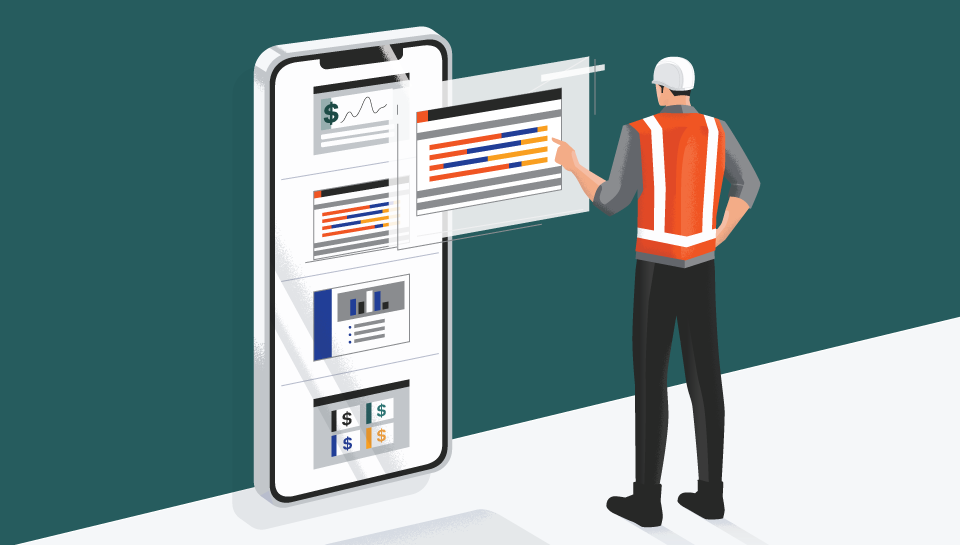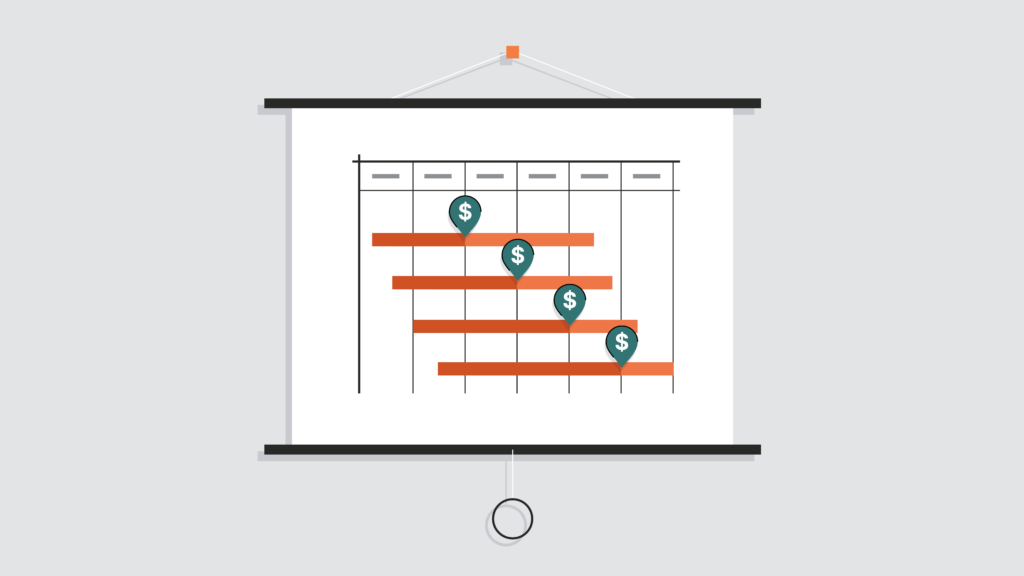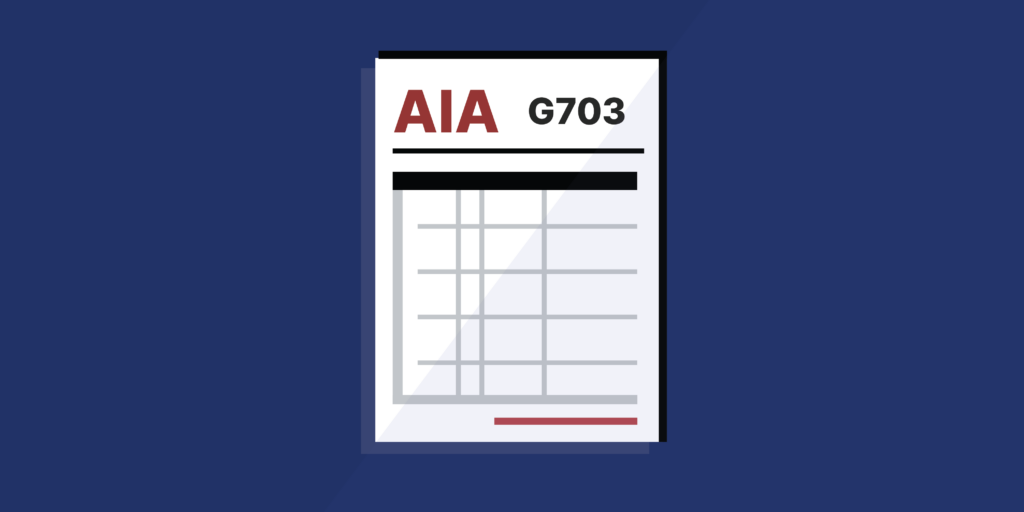— 5 min read
Construction Escrow: What Contractors & Suppliers Need to Know
Last Updated Dec 13, 2023

Every construction project starts with funding — and some projects are funded through construction escrow accounts. These accounts are often opened by the lending institution to help with the distribution of funds during a project. Let's take a look at what contractors need to know about construction escrow accounts and exactly how they're used.
Contents
Table of contents
What is escrow in construction?
An escrow account is a type of holding account for funds on a construction project. It’s usually set up by the lender or financial institution with a title company for a project, but can also be started by a project owner.
The account holds funds for the project until the work is complete, and then releases them to the contractor. Usually, accounts are funded for the amount of the completed contract for the project.
Escrow accounts serve as a guarantee that funds will be available for the project. Cash is deposited into them before work starts, so the contractor knows the funds are available — and they will get paid.
These accounts are often used with construction fund control services, which help banks and financial institutions keep track of their construction loans and ensure that their loans aren’t overdrawn.
How are escrow accounts used in construction?
An escrow account is set up when the construction loan closes, preferably before construction starts on site.
The financing company may require an escrow account, or it can be requested by the project owner or even the contractor. Then, the account is opened with the assistance of a title company that controls the account.
Next, the financial institution or owner deposits the amount of the project contract into the account, and the financial institution and title company manage the account and release funds.
When the contractor is ready to request funds for completed work, they submit a pay application to the financial institution. The application is reviewed by the bank or the fund control company. This often includes an on-site inspection to ensure that the amount requested matches the work completed.
Learn more – Contractor Financing: The Complete Guide
Once the application is approved by the inspector and/or fund control company, the owner and financial institution approve the request, notify the title company, and then the funds are released to the contractor from the escrow account.
Escrow accounts are usually found on financed projects, but they really could be used on any construction project to provide additional oversight of project funds and as a guarantee that the owner has the money to fund the project.
5 things contractors need to know about construction escrow accounts
1. You may not know there is an escrow account being used on a project.
Unless you’re the GC and see the checks written on an account labeled “escrow account,” you may not realize that one is being used on your project. Overall, these accounts don’t affect the flow of money on a construction project, so the lower-tier contractors and suppliers may not notice the difference.
2. An escrow account helps ensure that payments will be made on a project.
Because these accounts involve a third party — either a bank or title company — and are funded before the project begins, contractors can be sure that payment will be made, eventually.
Having funds set aside in an account especially for the project ensures that they are earmarked for that project, and that only expenses for that project are paid out of the account.
3. GCs can request the use of an escrow account on any project.
General contractors can ask their customers to set up an escrow account managed by a third party for any project. It doesn’t have to be in conjunction with a construction loan or other financing activity.
The owner funds the account for the amount of the contract, and the bank or title company will release funds as per the owner’s instructions. Using escrow accounts on large projects is a way to ensure that funds are available before the work begins, and they can be used when the financial status of the project owner is questionable.
Subcontractors and suppliers may find the use of an escrow account to be a bit cumbersome, but if the subcontract is large enough, the additional cost of managing the account may be worth it.
4. Escrow account managers often require additional documents with the payment application.
Since often the escrow account manager controls the funds and tries to ensure the account is used only for completed project work, they have higher documentation requirements.
Contractors may need to submit proof of costs and work completed, or the financial institution may send an inspector to verify what has been completed. All this adds up to more paperwork.
5. Because more parties are involved in financial transactions for the project, payments may be slower.
There may be additional approvals needed because of the escrow account, which could slow down the delivery of funds. Also, if the escrow account is being managed by the title company, it may take additional time to get paid.
If you’re working on a project with a construction escrow account, don’t panic. Overall, financial transactions for the project will not be affected. You may find payment is a bit slower, but the funding of an escrow account assures you that the funds are available to pay for your work.
Categories:
Tags:
Written by
Dawn Killough
33 articles
Dawn Killough is a writer with over 20 years of experience in construction, having worked as a staff accountant, green building advisor, project assistant, and contract administrator. She shares fundamental green building strategies and techniques in her book, Green Building Design 101. Dawn lives in Portland, Oregon.
View profileExplore more helpful resources

Construction Payment Applications: A Guide for Contractors
For general contractors, getting paid requires much more than just an invoice. Before any checks are sent, contractors are asked to prove what has been completed, delivered, and more with...

Contractor Payment Schedules: Why They’re Important & Choosing the Best Schedule for Each Project
In construction, a payment schedule is a timeline of the payments to be made throughout the lifetime of a project. On most jobs, contractors don’t receive a single, lump-sum payment...

Guide to Progress Payments on Construction Projects
There are lots of ways to bill for work on a construction project. You can bill at the end of the project, at the beginning, or as you go along....

Subcontractor’s Guide to the AIA G703 Continuation Sheet
If working on a project using the American Institute of Architects (AIA) payment applications, the GC will likely require you to provide a continuation sheet, known as the AIA G703-1992...
